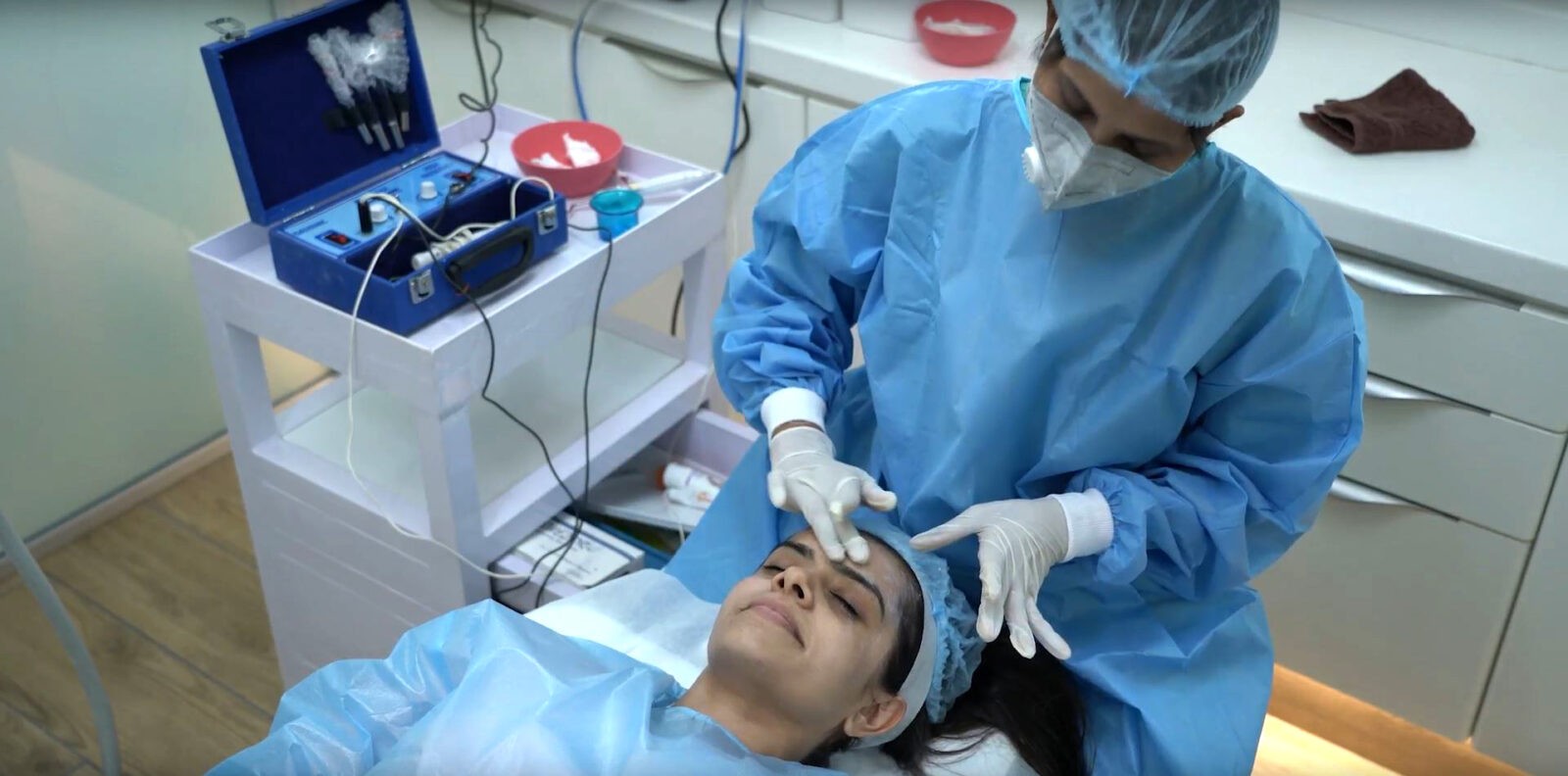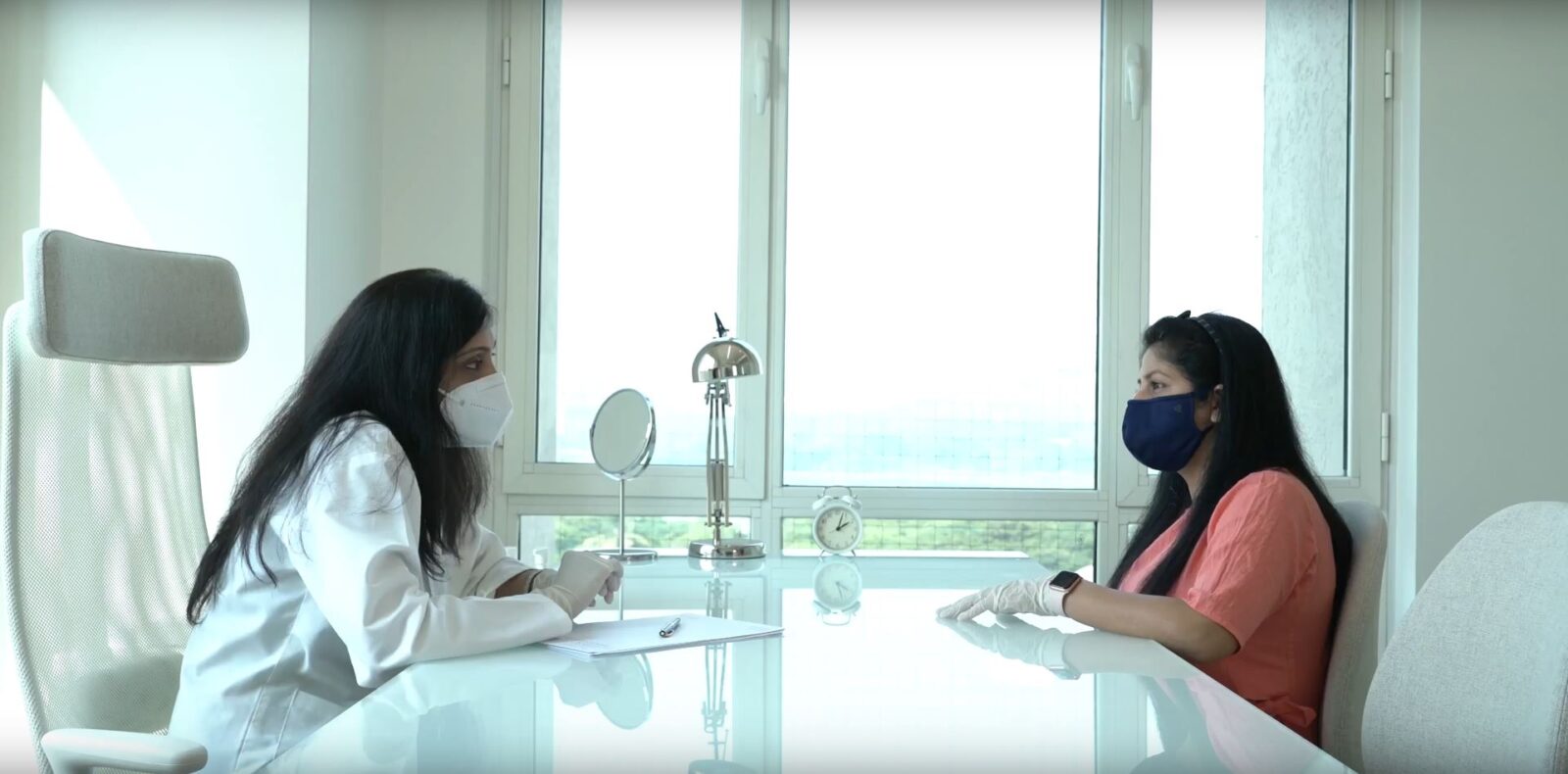Melasma is a common skin condition characterised by brown or grey patches on the face, particularly on the cheeks, forehead, and upper lip. It primarily affects women and is often associated with hormonal changes, sun exposure, and genetic predisposition. If you’re seeking effective melasma treatment in Powai, it’s crucial to understand the available options and take proactive measures to prevent and manage this condition. This article will explore various aspects of melasma and discuss the best treatments.
Can Melasma Be Prevented?
While melasma cannot be prevented entirely, you can take steps to minimise its occurrence and severity. Protecting yourself from chronic inflammation is vital. Chronic inflammation can exacerbate melasma, so it’s important to manage conditions like acne, eczema, and rosacea that contribute to inflammation. Adopting a healthy lifestyle, including a balanced diet, regular exercise, and stress management, can help reduce inflammation and improve overall skin health. Also, melasma is triggered by excessive sun exposure, and using sunscreen can help reduce the occurrence of melasma patches substantially.
What Sunscreen Should Melasma Patients Use?
Sunscreen is a crucial part of any melasma treatment plan. Look for broad-spectrum sunscreens with a high SPF (sun protection factor) of 30. Physical sunscreens containing zinc oxide or titanium dioxide are generally well-tolerated by melasma patients. Apply sunscreen generously and reapply every two hours.
Can Melasma Be Treated?
Yes, melasma can be treated. It requires a comprehensive approach involving professional treatments, at-home skincare, and lifestyle modifications. Also, it is split into two parts: treating the symptoms, which are the melasma patches, and treating the source or root cause.
Common Melasma Treatments For Symptoms (Melasma Patches Reduction)
- Topical treatments: Prescription creams containing hydroquinone, tretinoin etc., are commonly used to lighten melasma patches. These creams work by inhibiting melanin production and promoting skin cell turnover. It’s essential to follow the prescribed regimen and use these treatments under the guidance of a dermatologist.
- Chemical peels: Chemical peels involve the application of a chemical solution to exfoliate the skin and reduce pigmentation. Superficial peels with alpha-hydroxy acids (AHAs) or beta-hydroxy acids (BHAs) can effectively treat melasma. Deeper peels may be recommended for more severe cases, but they require careful consideration and should be performed by a qualified professional.
- Laser therapy: Laser treatments such as NDYag and PICO NDYag can target and break up the excess melanin in melasma patches. Multiple sessions may be required for optimal results. Choosing an experienced dermatologist is crucial.
Takeaway Message About Melasma
Melasma can be frustrating, but with the right treatments and preventive measures, you can effectively manage and reduce its appearance. It’s essential to consult a qualified dermatologist who can assess your case and recommend the most suitable treatment options. By combining professional treatments, at-home skincare, and a healthy lifestyle, you can achieve even more complexion and regain skin confidence.
For melasma treatment in Powai, you can visit INURSKN, a trusted skincare clinic offering services tailored to individual needs. Their team of experienced dermatologists can provide personalised treatment plans and guide you on your journey toward clearer and healthier skin.
Remember, melasma treatments require consistency and patience, so stick to the recommended regimen and consult your dermatologist if you have any concerns or questions. Your skin deserves the care it needs, and with the right approach, you can achieve positive results in your melasma treatment journey.
About Dr. Sejal Saheta and InUrSkn:
Built on more than a decade of experience of Dr. Sejal Saheta, we are an honest and affordable skin and hair care clinic in Powai, Mumbai. Our goal is to make each patient comfortable and happy with their appearance with the least amount of intervention.
Dr. Sejal Saheta has dual degrees of MD and DNB in dermatology and venereology and has worked alongside some of the senior-most doctors at the largest hospitals in Mumbai.
Located in Powai, InUrSkn is the largest skin and hair clinic in the central suburbs of Mumbai and offers the latest technology in the safety of world-class infrastructure.
We are happy to be a part of your journey to reach your health goals. If you think we have been able to help you, please do review us:
On Practo: https://prac.to/vkpj
On Google: https://goo.gl/zHfACo
How can Dr. Sejal and InUrSkn help?
No matter what your skin and hair needs, Dr Sejal Saheta ensures personal attention to each patient and creates customized and scientifically-backed treatment plans for each patient. Through her years of experience and use of technology at her clinic (InUrSkn – Skin and Hair Clinic) located in Powai, Mumbai, she has been able to consistently deliver great results in the field of dermatology and trichology to thousands of patients. All of the above is done with the best-in-class machines within the comfort and safety of world-class infrastructure.




























 Call us
Call us Book Appointment
Book Appointment Enquire
Enquire Location
Location




